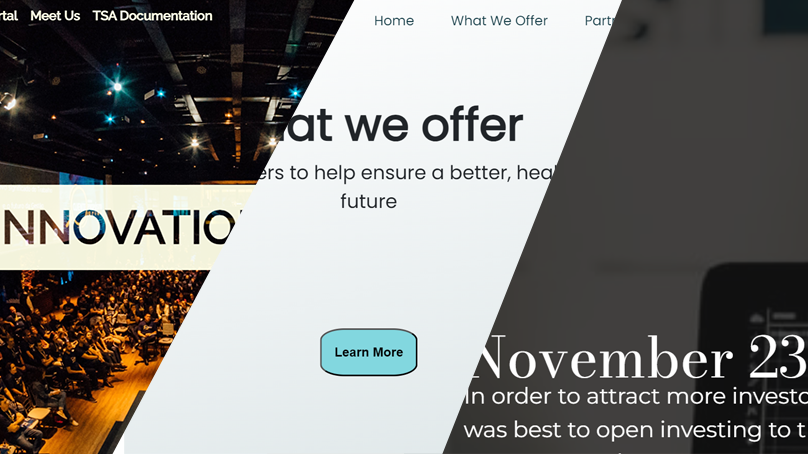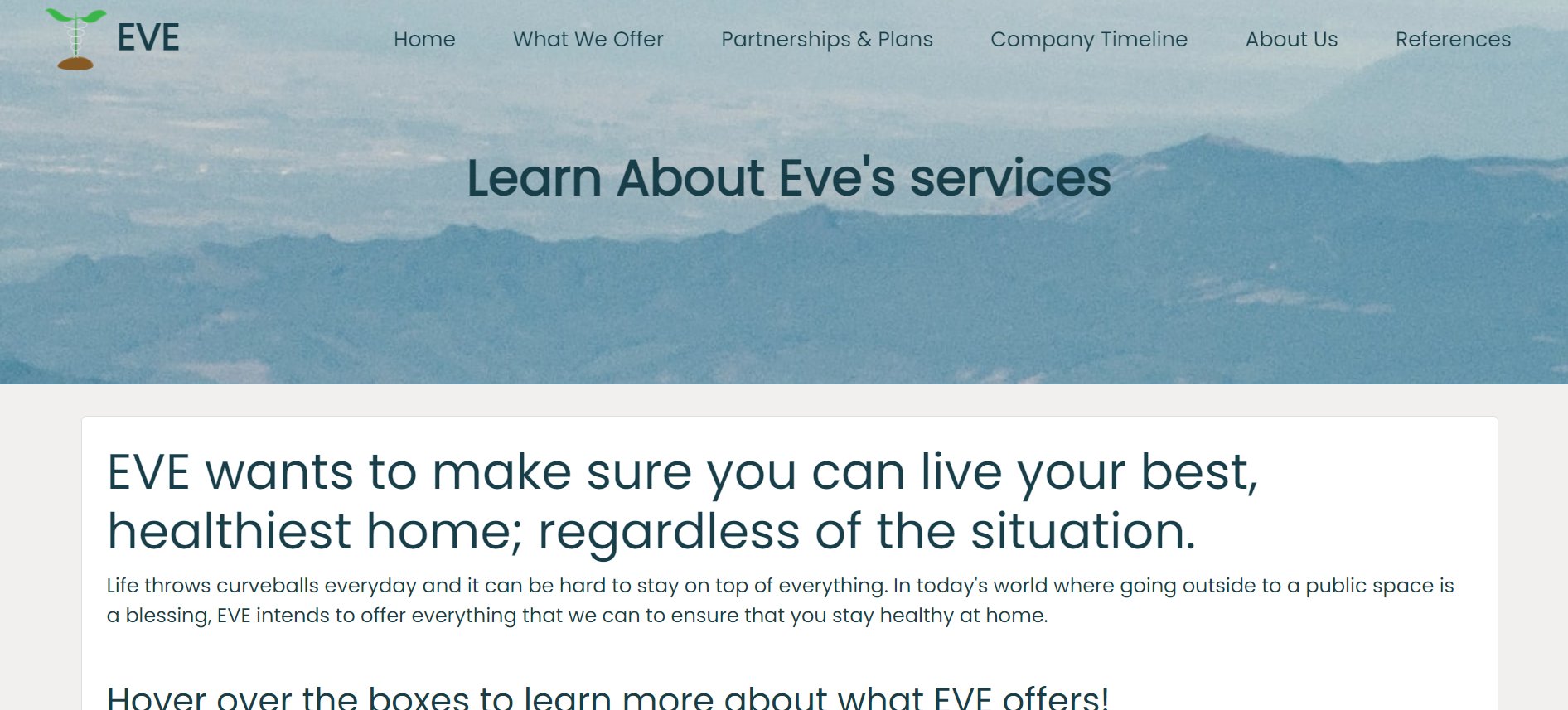Projects
Below are the projects that I've worked on throughout my academic and professional career. This list will be updated as I continue to work on more and more projects! The projects that are below are projects on display, but as I upload more relevant work, older projects will be sent to an archive. Don't worry they'll be saved and viewable!

For these projects, I led my group of friends in developing a website
for a
mock
company. These websites were a part of a competition that we
competed
regionally, and in the state of Pennsylvania. We developed three
websites for the three seperate years we competed, but this section
will
display the website that won 1st in the region and 7th in
the state.
As the lead developer, I took the ideas that our lead designers would come up
with and them into reality, through the use of HTML,
CSS,
JavaScript,
Bootstrap, and media assets. There were multiple designs, images,
and assets
that needed to be implemented from the designs into the websites. This
requires
great communication between myself and my designer. This website
was for a mock telemedicine company. The company that we came up with was called
“EVE”. The landing page (shown on the left) is a great example of a design that
required massive amounts of communication to execute.
The landing page allowed for easy access to the rest of the pages of the website, while providing enough information to let the user know what would be featured.
The landing page allowed for easy access to the rest of the pages of the website, while providing enough information to let the user know what would be featured.
In addition to utilizing our technical skills, we also had to
immerse ourselves in the intricacies of documentation,
presentation, and usage rights. This process
involved understanding how to meticulously document our work,
ensuring that every step and decision was clearly recorded and could be easily
referenced by others. We also had to master the art of presenting our
findings and creations in a coherent and compelling manner,
tailored to various audiences ranging from technical peers to
non-technical stakeholders. Moreover, we delved into the
complex world of usage rights, learning how to navigate legal
considerations related to intellectual property,
licensing agreements, and ethical use of
resources. This comprehensive approach not only enhanced our
technical capabilities but also equipped us with valuable
skills in communication and legal awareness.

These websites were primarily focused on frontend development and
design, ensuring that the user interface was both visually
appealing and highly functional. The design process involved creating
aesthetically pleasing layouts, selecting appropriate color schemes, and
incorporating intuitive navigation elements to enhance the user experience.
The use of good practice in code, such as
comments, project structure, and
Git resources, were necessary in order for us to be
successful. Implementing comments throughout our code
ensured that it was easily understandable and maintainable by anyone on the
team or future developers. A well-organized project
structure allowed us to keep our files and directories
logically arranged, which streamlined development and made the workflow more
efficient. Additionally, utilizing Git resources for
version control enabled us to track changes, collaborate seamlessly, and
revert to previous versions when necessary. These practices collectively
ensured that our projects were not only robust and efficient but also
sustainable and scalable.
One standout feature was the About page,
which presented information about the company in a creative and
engaging
way. This page wasn't just a standard biography; it utilized a
combination of interactive elements, multimedia
content, and dynamic visuals to tell the
company’s
story. We included sections that highlighted the company’s history, mission,
and
core values, all presented through a mix of animated
graphics,
video snippets, and interactive timelines.
This approach not only made the information more accessible and interesting
but
also reflected the company’s innovative spirit and commitment to quality
that we were trying to expresss.

To be updated soon